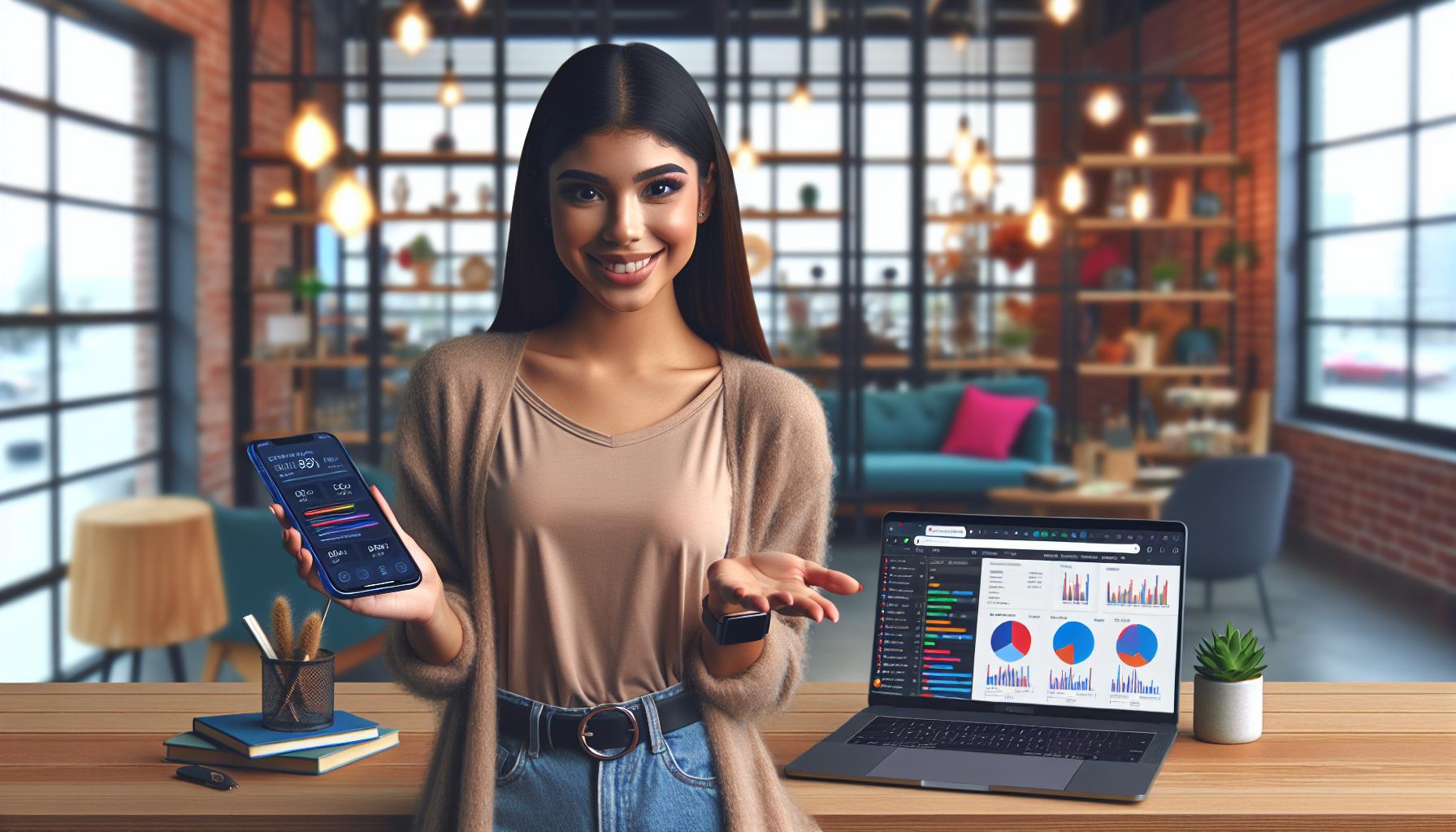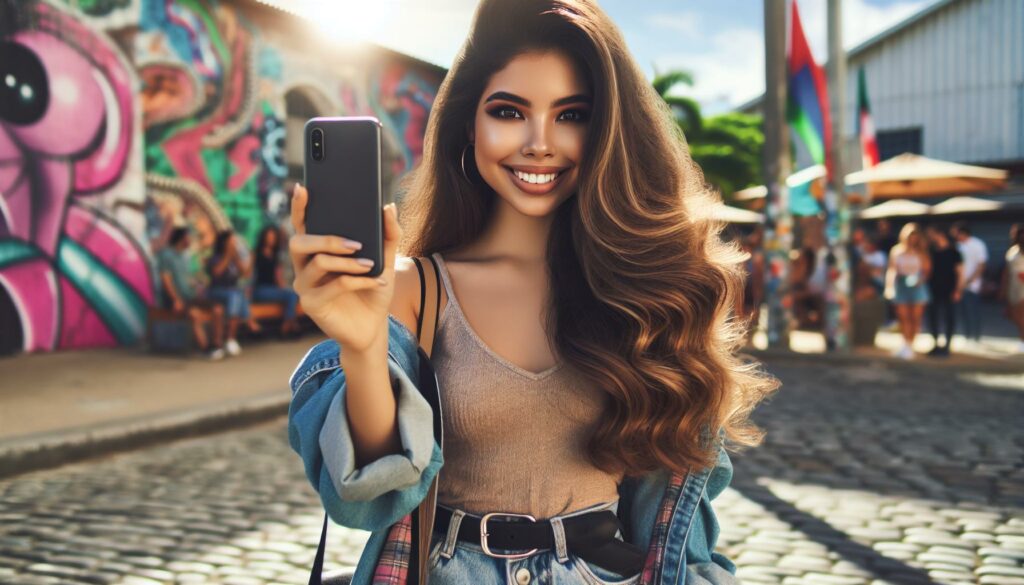In a world where a cat video can go viral faster than a speeding bullet, social media influencers have become the new rock stars of the digital age. With their perfectly curated feeds and seemingly effortless charm, they wield the power to shape trends, drive sales, and even influence public opinion. But hold onto your hashtags—this landscape is changing faster than you can say “sponsored post.”
Social Media Influencer Trends
Social media influencers continue to rise in prominence, shaping consumer behaviors and preferences. Influencer collaborations with brands create authentic engagement that resonates with audiences. Emerging platforms, like TikTok and Clubhouse, transform the influencer landscape, emphasizing video content and real-time interactions.
Micro-influencers attract attention due to their niche audiences and perceived authenticity, often achieving higher engagement rates compared to larger influencers. Their impact counts, making them preferred partners for brands targeting specific demographics.
Today, influencers are more than just personalities—they are skilled content creators who craft engaging, authentic content, shaping the future of marketing.
The trend toward short-form content demonstrates an increasing demand for quick, engaging posts that capture attention instantly. As stories and reels dominate platforms, influencers adapt their strategies accordingly, focusing on captivating visuals and concise messaging.
Sustainability and social responsibility gain ground as influencers align with brands that prioritize ethical practices. Audiences favor those who showcase transparency and accountability in their endorsements.
Furthermore, live streaming events reflect a shift towards genuine interactions and immediate audience connection. Influencers leverage this medium to engage with followers directly, facilitating real-time conversations and Q&A sessions.
Data-driven strategies underpin effective influencer marketing campaigns, allowing brands to measure performance accurately. Analytics tools track engagement metrics, enabling brands to assess return on investment and optimize future collaborations.
Innovation continues to characterize the influencer sphere, evolving with technology and consumer trends. Keeping pace with shifts in behavior and platform dynamics remains crucial for influencers and brands alike.
Current Social Media Influencer Trends in Marketing

Influencer marketing continues to transform, showcasing innovative strategies and emerging practices. Brands increasingly recognize the value of leveraging authentic connections established by influencers.
Rise of Micro and Nano Influencers
Micro and nano influencers are gaining recognition for their ability to engage specific audiences effectively. With follower counts ranging from 1,000 to 100,000, these influencers often deliver higher engagement rates compared to their larger counterparts. Their niche audiences demonstrate loyalty, leading to improved conversion rates for brands. Collaboration with micro and nano influencers fosters genuine interactions, enhancing brand affinity. This trend aligns with consumer preferences for relatability and authenticity in marketing.
Shift Towards Authenticity and Transparency
Brands now prioritize transparency in their influencer partnerships due to shifting consumer expectations. Audiences demand honest communication, prompting influencers to showcase genuine experiences with products. Transparency builds trust, making followers more likely to engage with content. Authenticity helps brands align with values that matter to their target demographics. As consumers increasingly scrutinize influencer promotions, ethical practices gain importance in marketing strategies, reinforcing credibility in influencer collaborations.
Platforms Influencers Are Dominating

Influencers increasingly navigate a dynamic selection of platforms that shape their popularity and reach. Current trends highlight how each platform plays a unique role in influencer marketing.
Instagram’s Continued Reign
Instagram remains a pivotal player in the influencer sphere, capturing over 1 billion active users each month. Visual storytelling thrives on this platform, allowing influencers to share engaging content while fostering connections. Brands invest significantly in sponsored posts and stories, leveraging the platform’s advanced targeting options. A survey indicated that 79% of marketers feel Instagram is the most effective platform for influencer collaborations. Authenticity resonates well here; influencers with strong connections to their audience deliver higher engagement rates.
The Growth of TikTok and Emerging Platforms
TikTok revolutionizes content creation with its short-form video format, boasting around 1 billion active users as of 2023. Influencers find success through creativity and spontaneity, which capture the attention of younger demographics. Trends emerge rapidly, with viral challenges driving brand partnerships. Additionally, platforms like Clubhouse provide real-time audio engagement, appealing to niche audiences. As these platforms grow, brands adapt their strategies to reach targeted consumers. Marketers recognize the importance of aligning with influencers on these platforms, as authenticity and relatability continue to shape consumer preferences.
Impact of Technology on Social Media Influencer Trends

Technology plays a crucial role in shaping influencer trends, driving innovation and engagement in the marketing landscape.
AI and Automated Influencer Marketing
AI transforms influencer marketing through automated tools that simplify campaign management. Brands can utilize AI to identify suitable influencers based on audience demographics and engagement metrics. This approach enhances efficiency by cutting down the time spent on research. Additionally, AI tools assist in performance tracking and optimization, allowing brands to adjust strategies based on real-time data. Influencers benefit too, as AI helps streamline content creation by providing insights into trending topics and optimal posting times. Influencers are increasingly leveraging AI tools to enhance content creation, audience engagement, and data-driven marketing strategies, making their campaigns more effective and scalable.
Data Analytics for Targeting Audiences
Data analytics empowers brands to precisely target audiences by analyzing consumer behavior patterns. By leveraging data, companies uncover insights on viewer preferences and engagement levels. Therefore, brands can tailor content to resonate with their target demographics. High levels of engagement emerge when influencers align their messages with data-driven insights. Through performance metrics, brands measure campaign effectiveness, ensuring that collaborations yield desired results. Consequently, refined targeting strategies enhance ROI, making data analytics indispensable in influencer marketing.
Future Predictions for Social Media Influencer Trends
The influencer landscape is poised for continued evolution. Expect micro-influencers to gain further significance as brands seek authentic connections with niche audiences. Such influencers consistently achieve higher engagement rates, making them prime candidates for targeted campaigns.
Platforms like TikTok will further revolutionize content formats. Engagement on TikTok is already substantial, and brands will increasingly explore partnerships that align with this short-form video trend. Unique creative strategies tailored for TikTok’s audience will emerge as a priority in marketing efforts.
Sustainability and social responsibility will shape influencer choices. Consumers actively seek influencers who promote ethical practices, making it essential for brands to consider these values in their collaborations. This emphasis on integrity will elevate influencers who champion social causes.
Authenticity will remain paramount in influencer marketing strategies. As scrutiny of influencer promotions increases, transparent relationships between brands and influencers will help cultivate trust. Brands emphasizing honest communication can expect more favorable engagement outcomes.
Data-driven strategies will continue to play a crucial role. Influencer campaigns will increasingly rely on analytics to refine targeting and performance evaluation. Metrics related to audience engagement and demographics will inform collaboration choices, ensuring that brands connect meaningfully with consumers.
Live streaming will become an integral part of influencer interactions. This format fosters real-time connections with followers, enabling influencers to deliver authentic experiences. Expect brands to adapt their approaches, incorporating live events into their marketing strategies to tap into this growing trend.
Emerging technologies will transform how influencers engage audiences. AI tools will enhance influencer selection and campaign management, streamlining the process for brands. Data analytics will facilitate deeper insights into consumer behavior, enabling brands to craft content that resonates directly with their target demographics.
Future of Influencer Marketing
The landscape of social media influencers is rapidly evolving. As audiences seek authenticity and relatability, brands are adapting their strategies to align with these values. Micro-influencers are becoming essential partners for targeted campaigns, while platforms like TikTok and Clubhouse are changing how content is created and consumed.
Sustainability and ethical practices are now at the forefront of consumer preferences, pushing influencers to reflect these values in their messaging. Data-driven approaches are enhancing the effectiveness of influencer marketing, enabling brands to refine their targeting and engagement strategies.
Staying attuned to these trends will be crucial for both influencers and brands as they navigate the dynamic digital environment. Embracing innovation and fostering genuine connections will define the future of influencer marketing.

